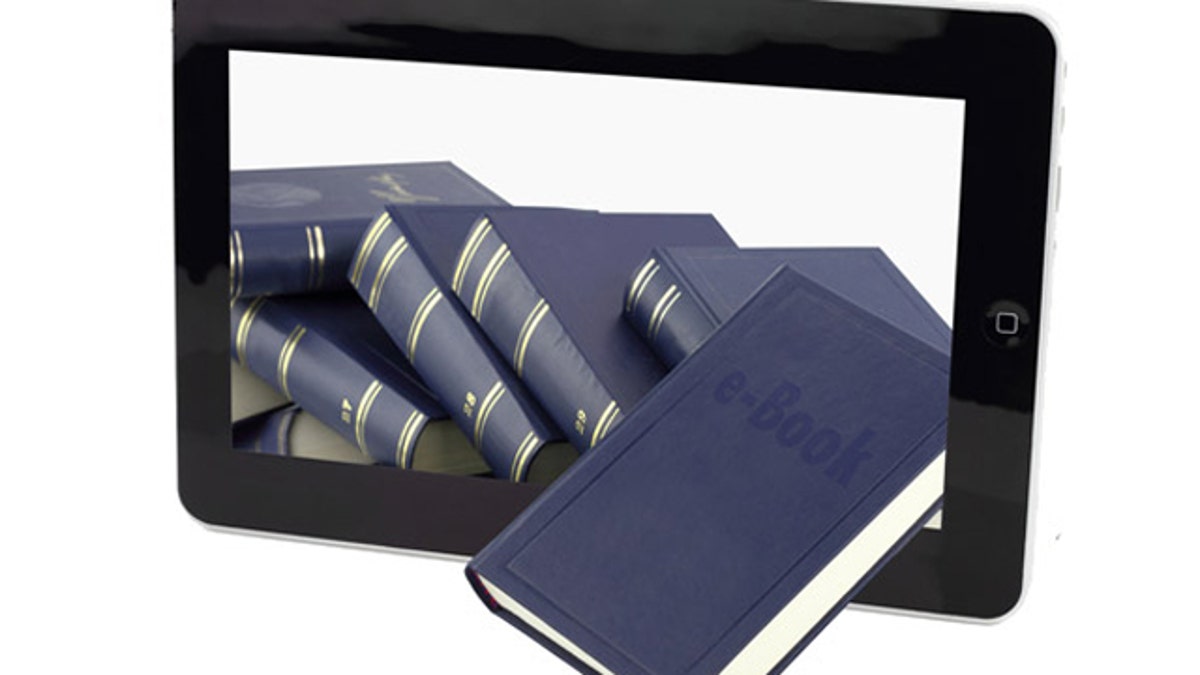
(Laptopmag.com)
There's no doubt that Apple's new iBooks 2 initiative has the potential to vastly improve the K-12 learning experience by offering attractive digital textbooks with interactive features like videos, animations, definitions, flashcards, and quizzes. However, the proprietary nature of the software means that publishers, parents, and schools will be locked into Apple's ecosystem.
It's an ecosystem so expensive that it will only help the privileged few.
The cost of iPads, digital textbooks, and the infrastructure to support them will prevent most schools from offering this technology to their students, creating yet another sharp dividing line between the haves and have-nots. Instead of paying a Mac tax, educators should embrace open standards like EPUB and the price-lowering competition they bring.
According to the National Center for Education Statistics, the U.S. spends around $12,000 per student per year in its public schools. While that seems like a lot of money, it's not nearly enough in most schools to cover small class sizes (the average student-teacher ratio for elementary schools is 20.2 to 1). Is there really enough money available to buy an iPad for every student or will parents end up footing the bill?
If a school adopts a program where it owns the iPads and supplies them to students, the school then becomes responsible for managing that hardware from an IT perspective. Districts that might now have one or two support people per building may have to double or triple their staffs. After all, if the school supplies the iPads, it needs to make sure they survive abuse, that they can't be used for anything but their intended purposes, and that they have the latest versions of the textbook software preloaded.
Unlike some laptops that schools roll into the classroom on carts and then roll back out again for the next class, these iPads would have to be loaned to the students for home use, because there's no way kids can do homework or study if they can't take textbooks with them. Taking the iPads home results in all kinds of risks: damage, theft, hacking, misuse. Schools would have to be ready to buy a lot of spare units.
Of course, all of the hardware and maintenance costs of the iPad don't include the price of buying a fresh textbook for every student in every class, every year. At Thursday's event, Apple told All Things D's Peter Kafka that all of the textbooks would be $14.99, which is certainly a lot cheaper than the $75 per book figure he mentions in his article. However, it's unclear where Kafka gets his statistic that schools replace their textbooks after five years, bringing the 5-year cost per book to that same $75.
What Apple's supporters don't take into account is that many schools don't pay $75 every five years. The North Carolina Department of Public Instruction reports that, in 2010, its schools spent an average of just $42.61 on elementary school science books and $59.72 on high school science texts, both of which would amortize their costs after three or four rather than five years. Many schools end up keeping textbooks in circulation for a lot longer than five years, and that's not necessarily harmful to students. While a contemporary history book seems out of date almost immediately, a basic math book or a foreign language book from 10 years ago could still be perfectly relevant today.
If you commit to using iBooks, you're committing your school to a new textbook purchase every single year with no leeway to delay that purchase for a couple of extra years to save money. There's also no guarantee that Apple's pricing stays at $14.99 for all titles forever or that the titles you want will be made available via Apple's iBooks store. If your school buys a stack of paper textbooks, at least the administrators know that those books will still be around in 5 or 10 years, even if the binding is becomes worn. Perhaps someone other than Apple could get textbook publishers to sell transferable book licenses to schools so they can redistribute the same licenses to new students every year.
Publishers who want to create titles for Apple's iBooks store must use Apple's iBooks Author application, which runs on Mac OS X only. Publishers who use Windows or Linux computers in the office need not apply. If you want to create EPUB books, you can get software that runs on any platform.
Just as with iTunes and its App Store, Apple gets to decide what content gets in, based on its arbitrary standards. The Cupertino company is nothing if not risk-averse, so what happens if the content of your textbook is deemed too controversial to get into the store? If schools adopt iBooks textbooks en masse, we'll get to find out whether CEO Tim Cook believes in Intelligent Design or Evolution based on what his censors approve.
Strangely, Apple's EULA agreement, as currently worded, also prevents authors who use the iBooks Author software and want to market their work on the iBooks store from selling their work anywhere else. It says: " If your Work is provided for a fee (including as part of any subscription-based product or service) you may only distribute the Work through Apple." Presumably, the text you write will still be your own if you paste it into another program to sell elsewhere.
If educators support the EPUB3 format, students will have the option to purchase their textbooks from any number of online stores, giving them a wide range of book choices and the ability to find the best deals for their schools. There's no need to pay a profligate textbook tithe to eBook Emperor Cook in Cupertino. Free your mind and the texts will follow.
- Top iPad Alternatives
- Apple's iBooks 2 and iTunes University Hands-On
- Analyst: iBooks 2 Could Be Apple's Most Important Annoucement
Copyright 2011 Laptopmag.com, a TechMediaNetwork company. All rights reserved. This material may not be published, broadcast, rewritten or redistributed.
